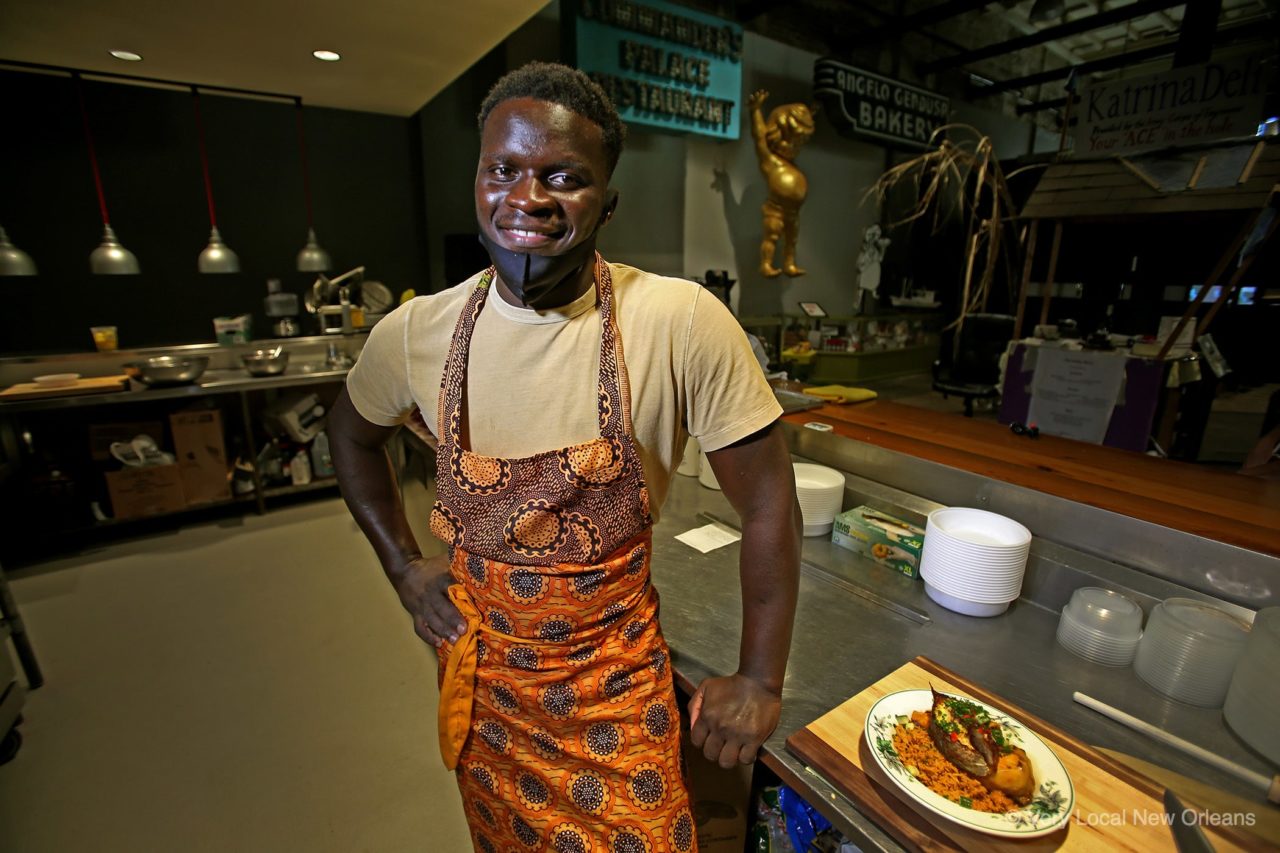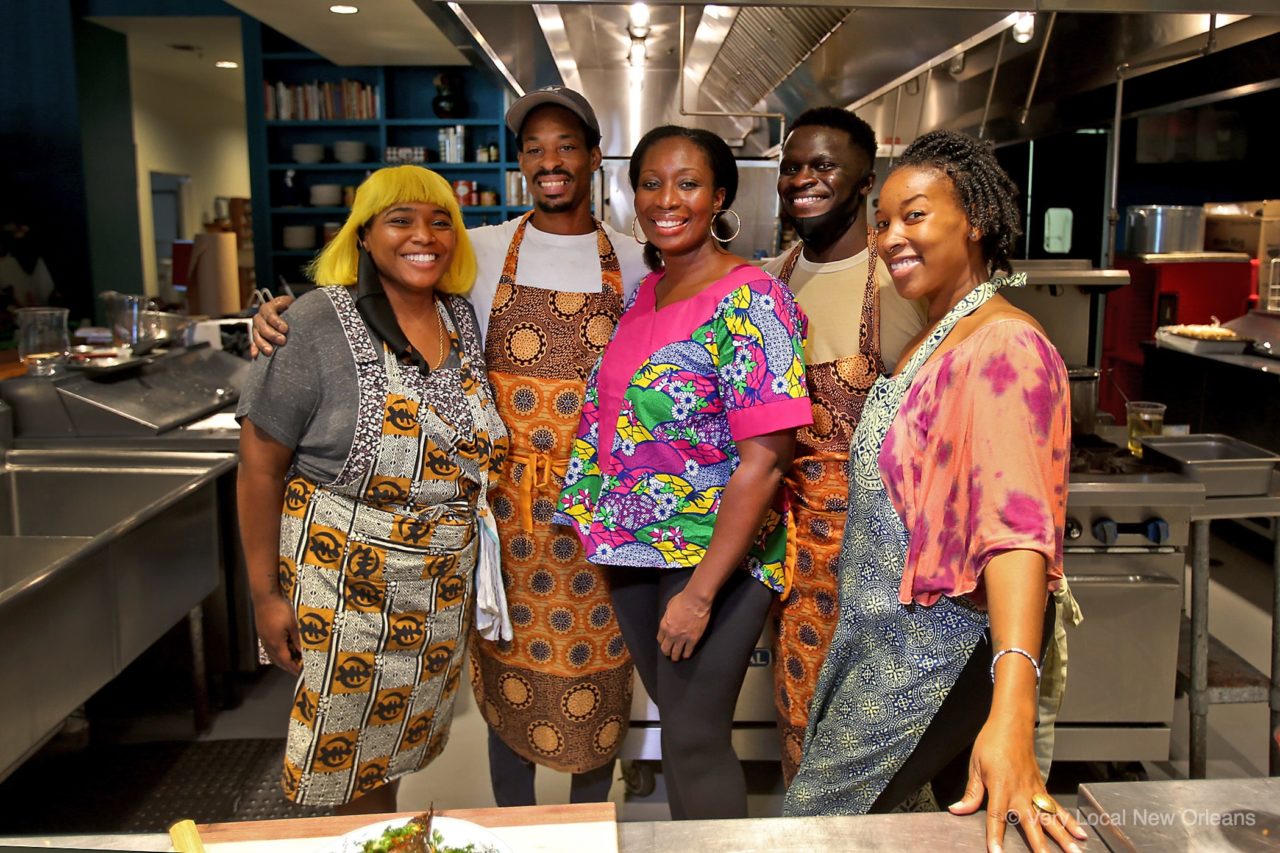Before Melissa Martin opened the Mosquito Supper Club, and before she wrote her lauded debut cookbook, she just wanted to make a decent living doing what she loved. She was making $12 an hour as a line cook, and she was eager to continue honing her skills. Then, a spot came open at the restaurant at Francis Ford Coppola’s winery in Napa Valley.
“I remember going in for the interview, getting offered a job and told I would be making $20 an hour,” Martin recalled. “I was a single mom, an unseasoned cook, and I called my mom and I just started crying. Yes, the cost of living was higher and gas was insane, but I felt for the first time I was getting paid something I may be able to get by with.”
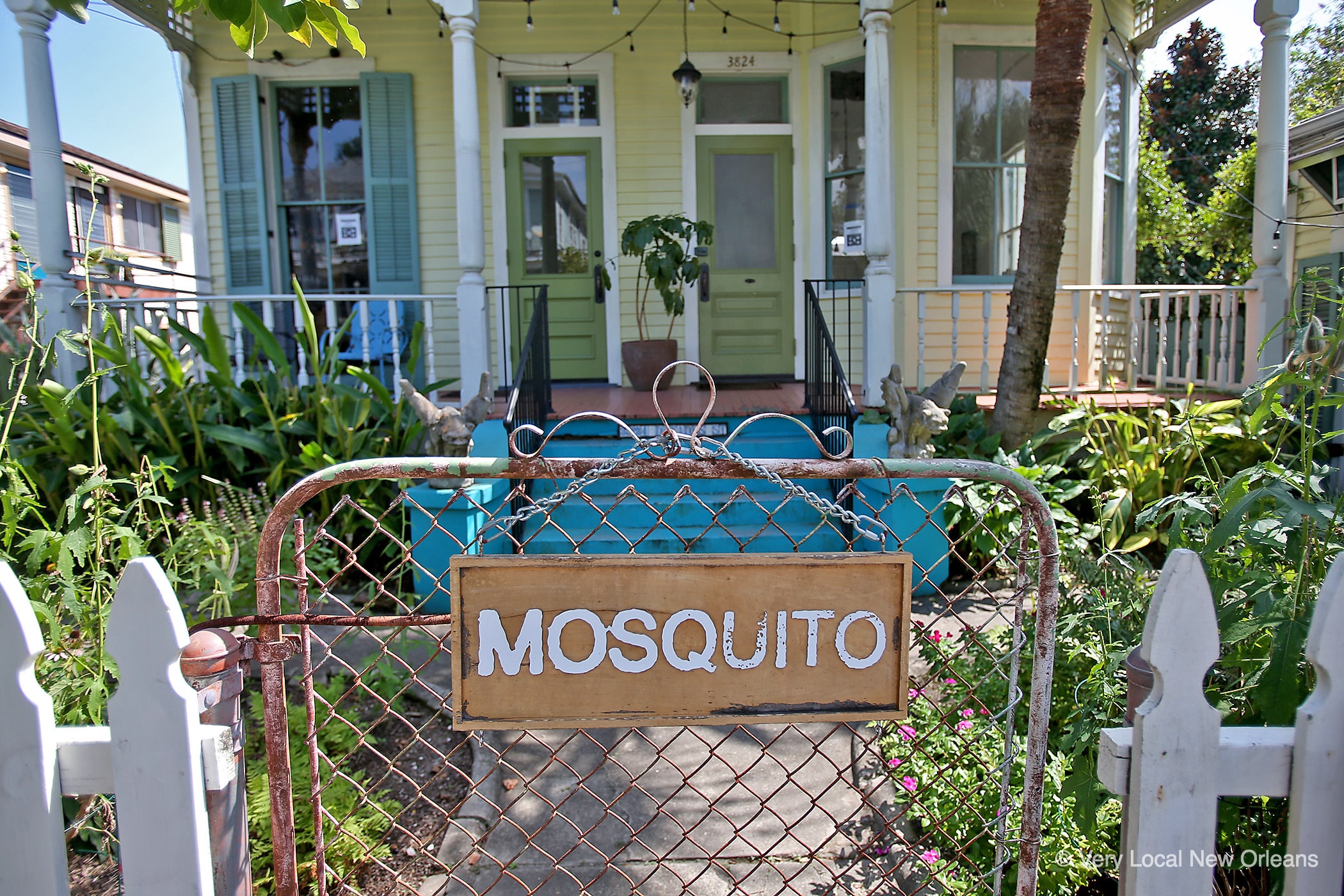
The experience stuck with Martin, and it’s why, when she later returned to southeast Louisiana and began her journey as owner, she was ready “to throw the restaurant model against the wall and see what we could come up with.” What resulted was the Mosquito Supper Club, which started as a pop-up but today exists as a brick-and-mortar location where diners choose a preordained seating time for structured tasting menus. Staff wages start at $18 an hour plus tips, or are salaried.
Martin’s cookbook was published in March, and the splash it made all but guaranteed a busier restaurant than ever. But the coronavirus pandemic and the impact it wrought on how we socialize changed all that and more as restaurants across the country have shuttered, some permanently, and in New Orleans, put at risk the largest job sector in the city.
That the restaurant industry will be changed forever seems obvious. But the unspoken question looms large: Is the pandemic actually capable of changing the restaurant industry for the better?
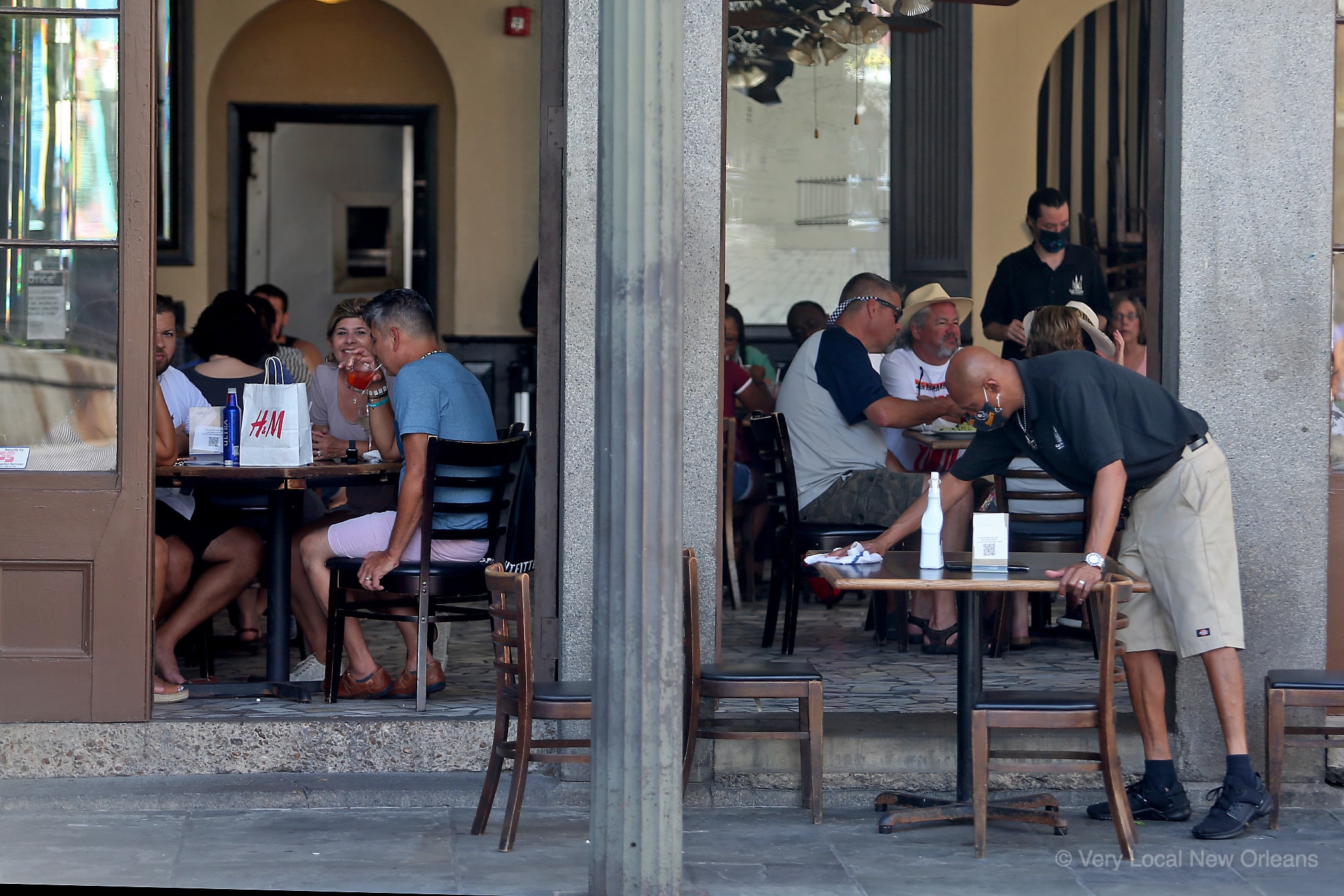
The coronavirus has laid bare inequities in almost every aspect of American life, and a return to the pre-pandemic normal for restaurant industry workers would mean a return to low wages, rare access to health insurance, rare access to paid leave, few options for reliable scheduling, and often discriminatory workplaces — all within a high-stress environment.
“In restaurants, the vast majority of people — up to 90 percent — earn less than $15 an hour, so these are people who are most vulnerable to job loss, (and) less equipped to deal with long-term unemployment,” said Robert Habans of The Data Center, a nonprofit data analytics firm. In New Orleans, hospitality establishments accounted for more than 28,000 jobs in 2016.
That vulnerability stands in stark relief during the pandemic when job opportunities are slim and those that remain require routine social interactions.
“We’re on the front lines of everything,” said Touré Folkes, a bartender and the founder of Turning Tables, an industry mentorship program. “There are things we’re exposed to first because of pure contact with people; we should be protected in our health and financially.”
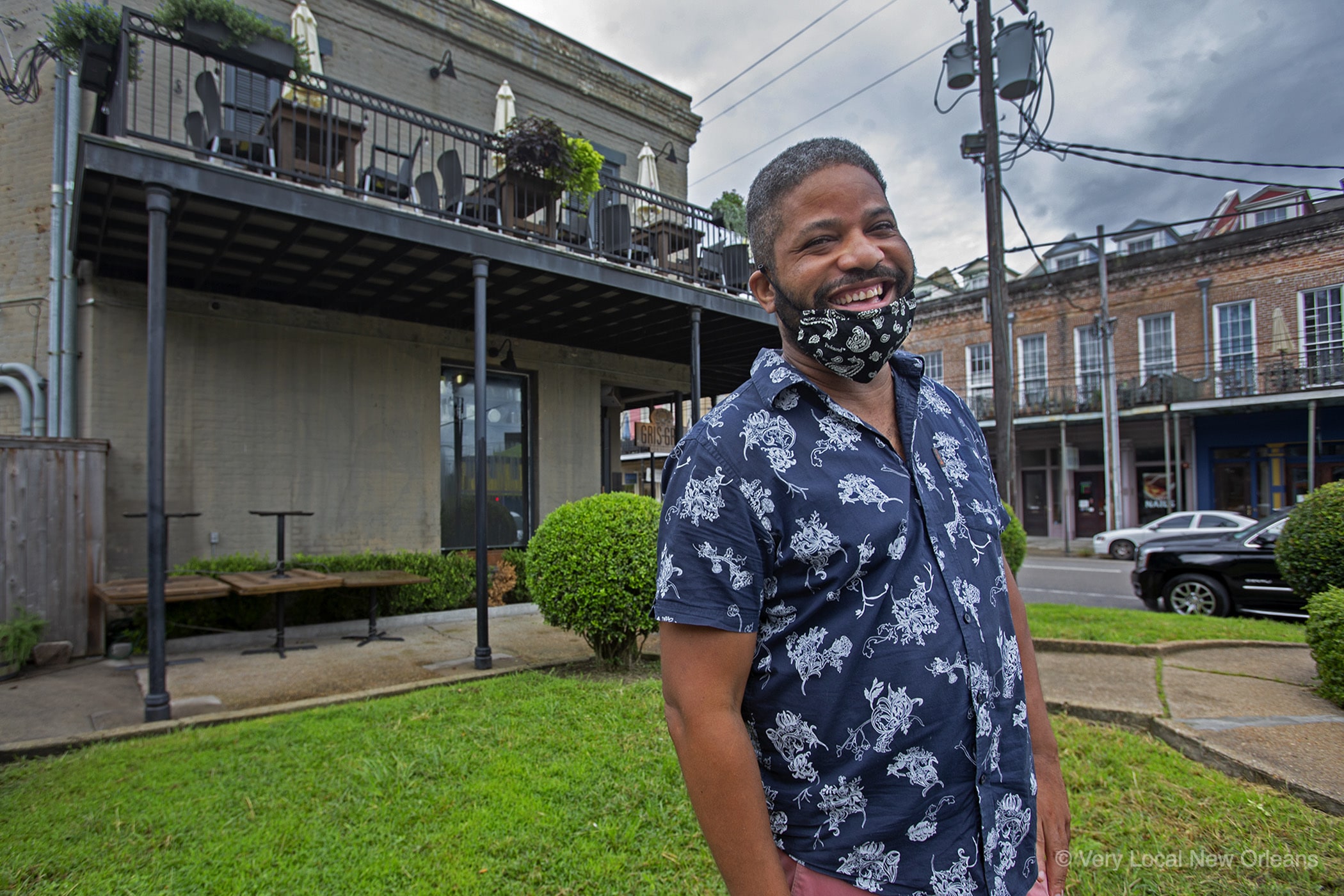
‘We can only improve…’
By the middle of August, Paul Rust hit 140 days of unemployment. A 20-year veteran of the service industry, in March, Rust first looked at the pandemic-imposed stretch of unemployment as a kind of unexpected break.
“It was an exciting moment, a moment of change. I thought maybe we’d all do a reset,” Rust said. “We can only improve in the industry. It’s a brutal field with some of the fewest work protections.”
Solving that, sources said, lies at the heart of creating a more equitable industry. In New Orleans, it could start with livable wages and access to health care.
“We want to professionalize the industry. That’s the bottom line,” said Mason Hereford, the chef and owner of Turkey and the Wolf and Molly’s Rise and Shine. “It can be a career. It’s a career for me. It always has been, and it doesn’t have to be looked at as some non-professional job.”
It’s impossible to know how many restaurants will be left standing once they’re able to reopen to full capacity, and it’s also difficult to gauge what a jump in restaurant wages would do to the city’s economy at large.
A study from the University of California, Berkeley, for example, found that minimum wage increases produced no adverse effects on employment or hours worked.
In practice in New Orleans, however, the results so far are mixed.
The flaw in the system
“This was an opportunity to re-engineer the model entirely”
It didn’t take long for Robert LeBlanc to realize there was no going back.
LeBlanc, whose LeBlanc + Smith restaurant group, saw the pandemic as a moment to change how he and his team run their businesses.
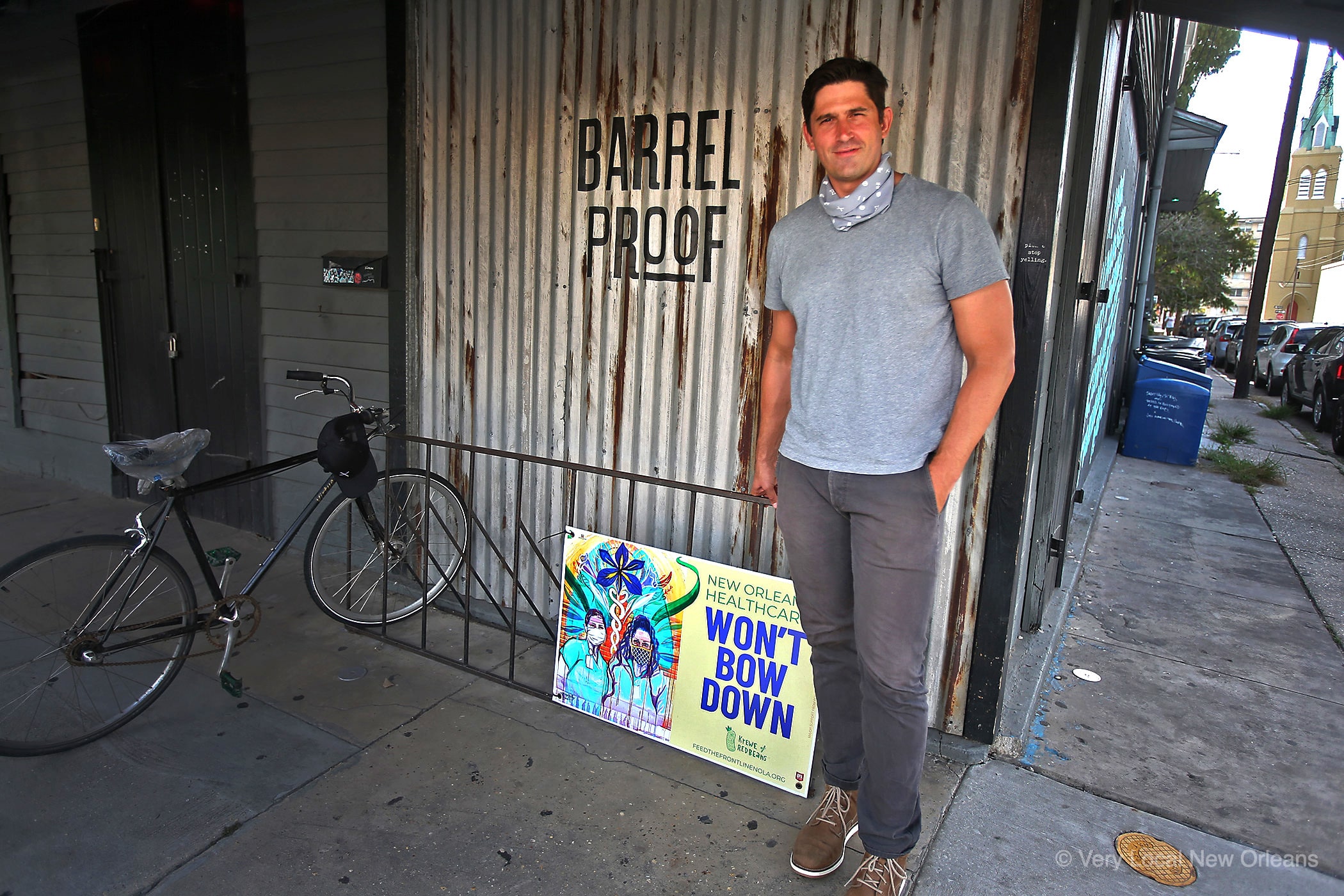
“This was an opportunity to re-engineer the model entirely and pay people more, so we designed a business model to do half the sales and get people to the position where they’re earning at least what (they would) on unemployment,” LeBlanc said.
The long-held standard for running a restaurant is that expenses are split into thirds: One-third for staff costs, one-third for food, and one-third for overhead. For LeBlanc, that model had to shift.
“We just have to come up with more creative ways to prepare cuts of meat, creative ways to make cocktails to fit into that. Our wine list has become less expensive on the front end,” explained LeBlanc, whose restaurant group includes MeauxBar, Sylvain, Cavan, and Longway. “(We) just reorganized how we designed menu items, and they have to be equally delicious.”
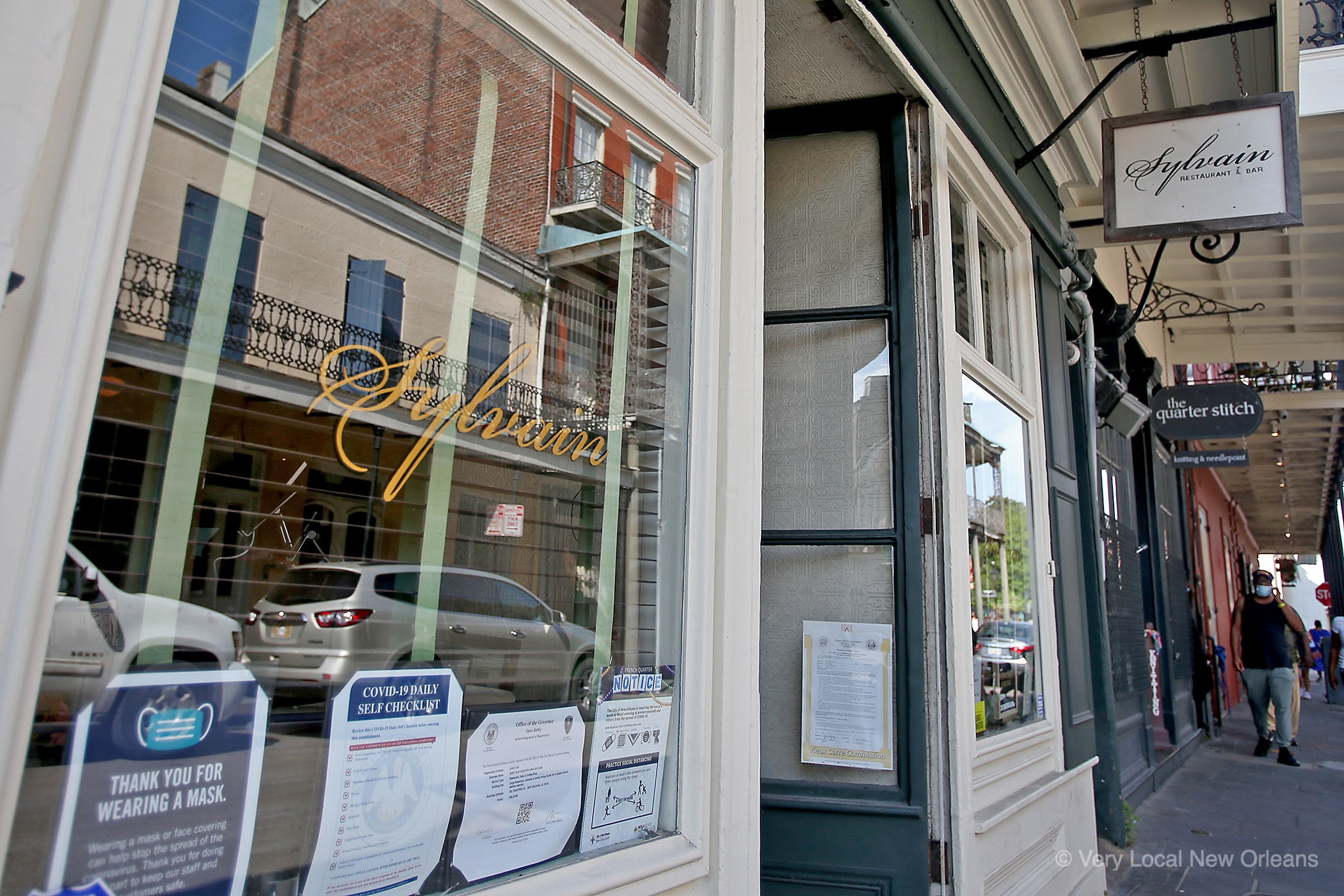
The changes mean everyone on LeBlanc’s team now makes at least $30,000 in salary and has access to a companywide health care policy. But the staff size is smaller. At full capacity, LeBlanc + Smith restaurants employed about 120 full-time equivalents. Today, that number is about 50, though another 30 staffers were able to get work at the company’s new hotel, which opened during the pandemic.
“The flaw in this system is you can’t bring all the jobs back,” LeBlanc said. “Let’s just say everybody adopted this system. Yes, the jobs are better, more engaged, compensated better. If we went to all restaurants doing this, you’d lose half the jobs.”
At The Munch Factory, owners Alexis and Jordan Ruiz baked into their model a living wage when they opened.
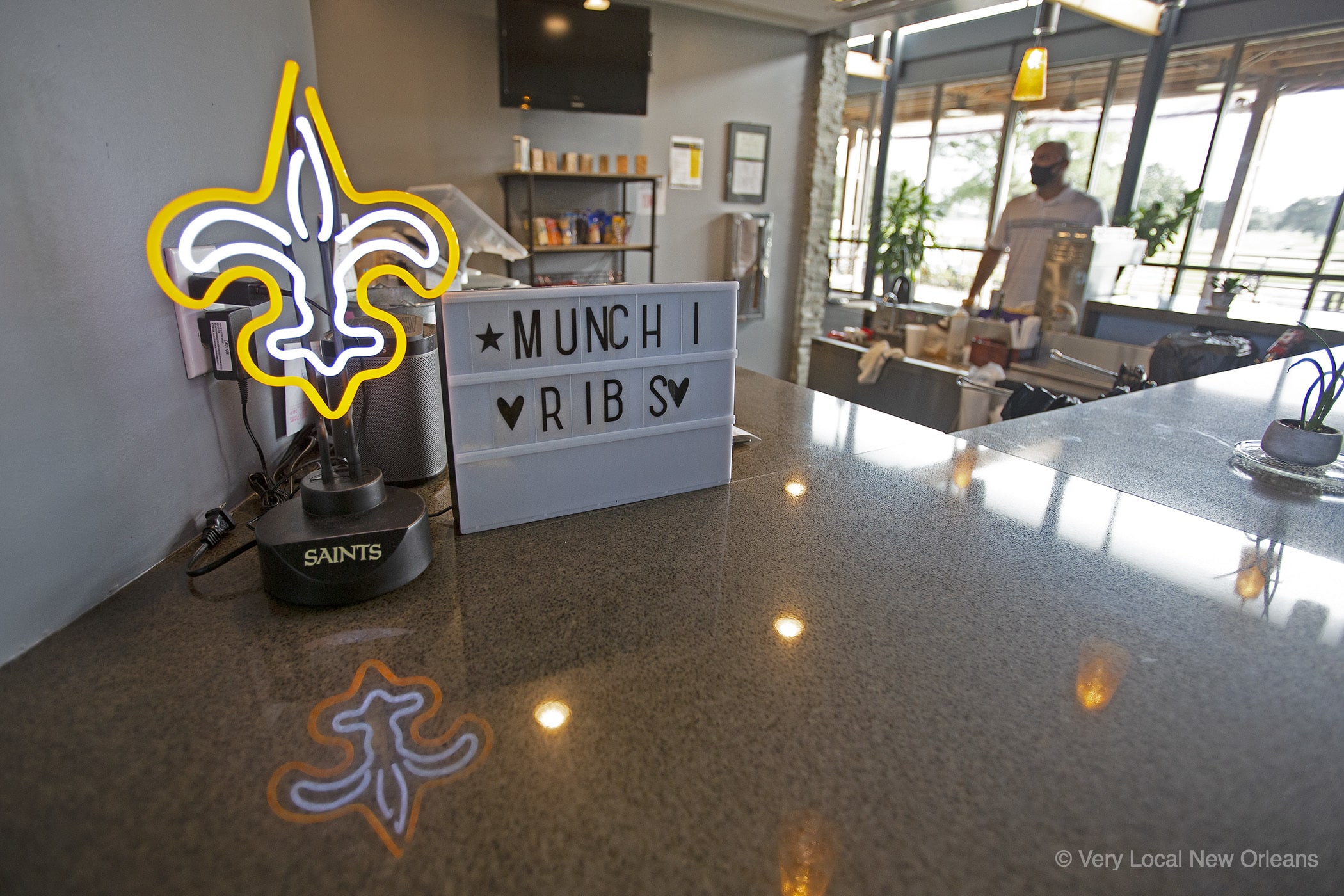
“It’s always been important to us that the dishwasher is just as important as the lead cook,” said Alexis Ruiz, who has been in the industry since she started as a server at 16. “We found we had a lot more retention that way, too. One of the main things that’s always been one of our guiding principles is (our staff feels) like you support them more than just financially.”
Before the pandemic, Ruiz’s team started with a base pay rate of $10 per hour. So if a server didn’t make at least that much in tips, the restaurant would make up the difference. During the pandemic, everyone makes $10 an hour plus tips — but her staff size has shrunk too. Days after discussing the hardships of the pandemic, The Munch Factory announced the closure of its Garden District location.
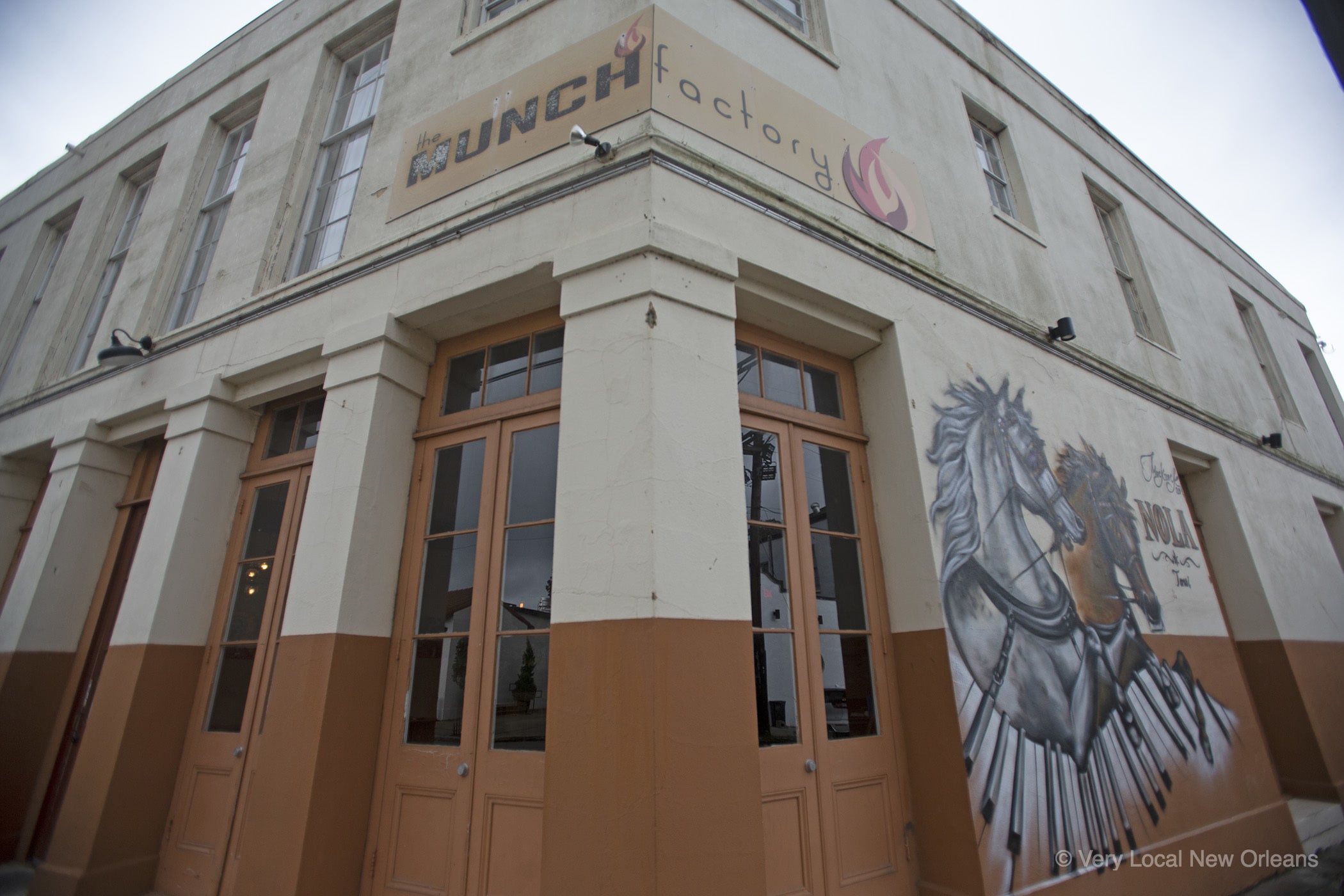
“… the dishwasher is just as important as the lead cook.”
“I struggle with feeling like I’m everybody’s mom,” Ruiz said before the announcement. “Their family livelihood is based on our success, and that’s scary and inspiring at the same time. People just want to feel like you got their back no matter what, and that feeling doesn’t go away whether there’s a pandemic or not.”
A perfect storm
When Olivia McCoy launched WeHelp NOLA in February, she wasn’t yet thinking about the pandemic. The 10-year veteran of the New Orleans restaurant industry was instead thinking about how the industry is high stress and offers low control.
“In New Orleans especially, it’s a big industry with long hours, very little breaks, and most restaurants don’t offer any health insurance,” McCoy said. “And on top of that, you have a heavy drinking/drunk culture, so it provides this perfect storm to be a toxic environment that is difficult to maneuver and succeed in without resources to guide that along.”
WeHelp NOLA, which offers free mental health care for restaurant employees in New Orleans, works toward providing those resources.
The lack of healthcare access in restaurant jobs is staggering: A 2011 study showed almost 12 percent of restaurant workers reported working at least two shifts despite an illness that included vomiting or diarrhea. A March 2020 study reported that more than 20 percent of Louisiana’s food service and preparation workers were uninsured. In a 2017 survey, 43 percent of food and beverage workers reported that their job stress caused them to “always or often” engage in behaviors like drinking or crying regularly, and half said their job stress affected relationships with friends and family.
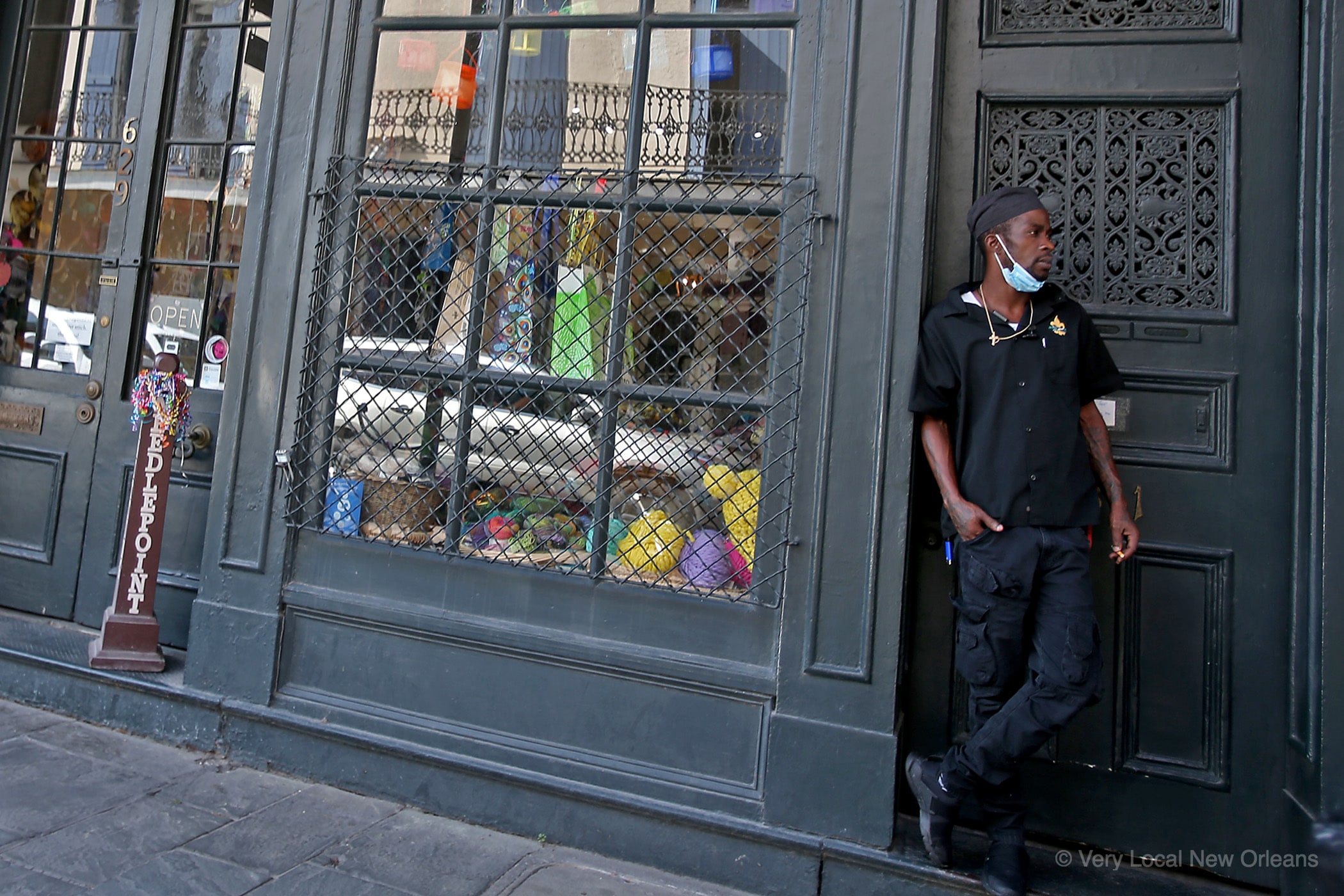
When WeHelp began offering free mental healthcare in February, McCoy said, the organization saw an average of five sessions per week. By August, their numbers jumped to as many as seven sessions per day.
“This isn’t something that came up because of the pandemic. There have always been these structural and systemic issues in our industry,” McCoy said. “This is something that has always been a need and has always been actively ignored because it’s a job with high turnover.”
Organizations like WeHelp NOLA, 504HealthNet and the Musicians Clinic do help fill the gap, especially as employer-sponsored health insurance remains out of reach even for some restaurant owners who work toward offering it.
“We tried (offering it) three times. It was too big of a hit. Servers can’t imagine spending another $300-plus, so we never pursued it,” said Ruiz, who said her staff size was too small to make health insurance economically viable for her team. “You want to have enough sales to say you got it covered all the way, but it’s just not feasible. A couple rough weeks can set you back really far. You never know who’s going to walk in the door, and there’s no crystal ball to answer that.”
‘It has to come from us…’
When Quinn Sills was 23, she was working at a popular New Orleans restaurant and making decent money — but the most exciting part of her job was that she was part of a push to unionize the staff.
“I don’t want to say it felt impossible, but it was really challenging,” Sills said. That restaurant “was special because we did have a large employee base, so there were a lot of voices we could take from and collectivize. Most restaurants around here are a bartender and four servers — where’s the power in that? It just feels really impossible.”
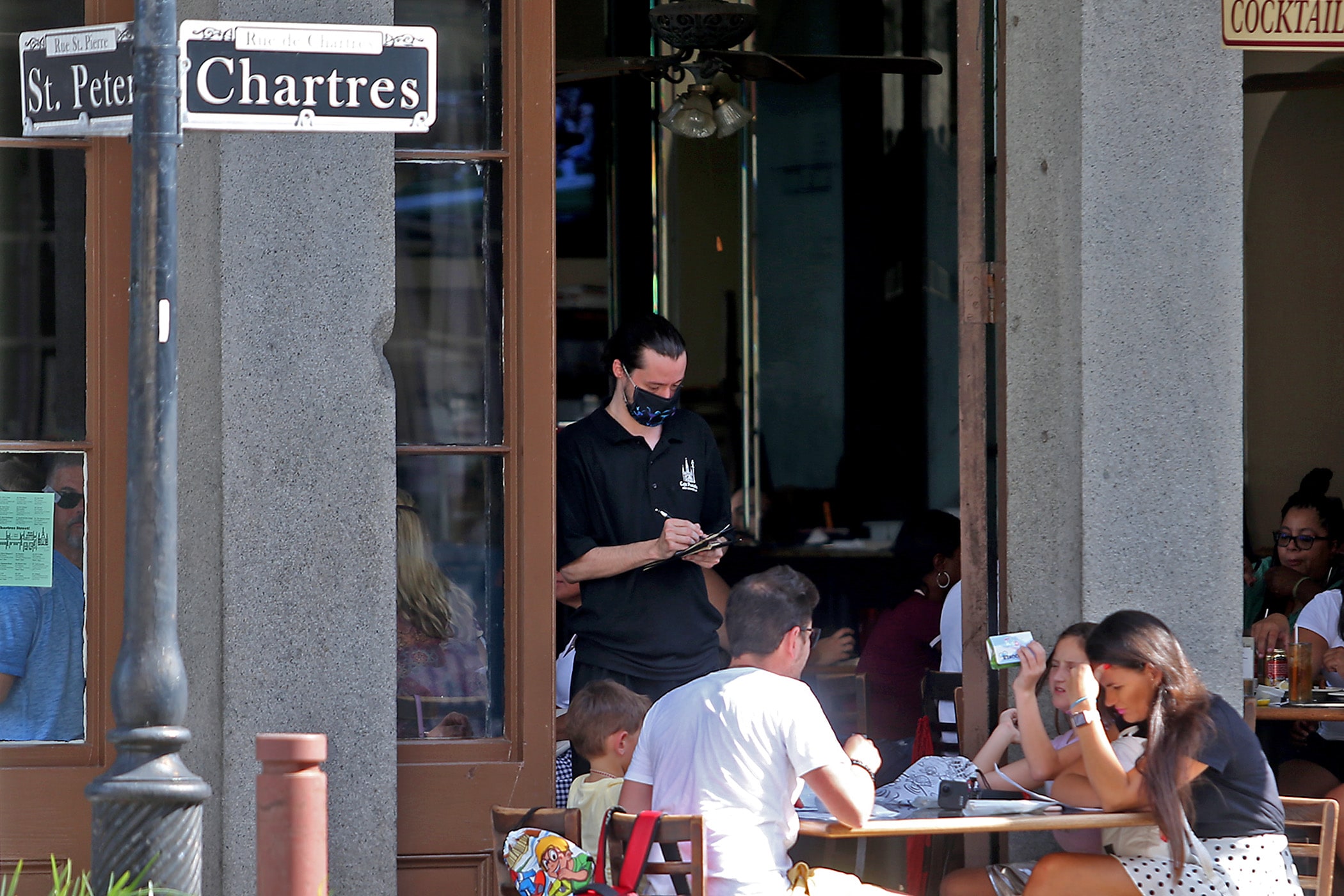
The unionization effort ultimately didn’t pan out, but the experience left Sills understanding that her voice can have an impact — and that impact matters.
Some efforts have been made in recent years to push for hospitality workers to enjoy a larger share of the profits they help create. During the pandemic, for example, a coalition of unions, nonprofits and advocacy groups asked the New Orleans Exhibition Hall Authority to release $100,000,000 of its emergency cash on hand for the city’s hospitality workers. Ultimately, the group secured a $1,000,000 donation.
The tax that funds the Authority should offer an opportunity, according to Emma Yip, who worked in New Orleans restaurants for about three years before moving this summer. As a committee member of the Democratic Socialists of America’s Restaurant Organizing Project, Yip was part of the collective effort urging the release of funds.
“All the city would have to do is divert those taxes to a universal health care system for hospitality workers when they get sick,” Yip said. “That’s something I think New Orleans could do very easily.”
Still, a change like that would require significant political effort, and Walt Leger III, the vice president for strategic affairs for New Orleans & Company and chairman for the New Orleans Exhibition Hall Authority, declined through a representative an interview request to discuss the restaurant industry’s future.
“Until the masses of hospitality workers have the right to organize, have the right to demand a safe work environment, have the right to go on strike without retaliation, there can be no transformation of our industry,” said Meg Maloney, an industry veteran and a member of the New Orleans Hospitality Workers Alliance. “It can’t come from our bosses, it has to come from us. … No one is simply going to give it to us.”
A complete transformation
“Our jobs are considered temporary in nature, and especially in New Orleans, they’re not temporary. You may be at one restaurant temporarily, but you’re in the industry for decades”
When Hurricane Katrina and the levee breaks that followed wrought havoc and destruction upon New Orleans 15 years ago, it took barely any time before the city’s chefs were back, fueling the recovery with anything they could throw on a plate.
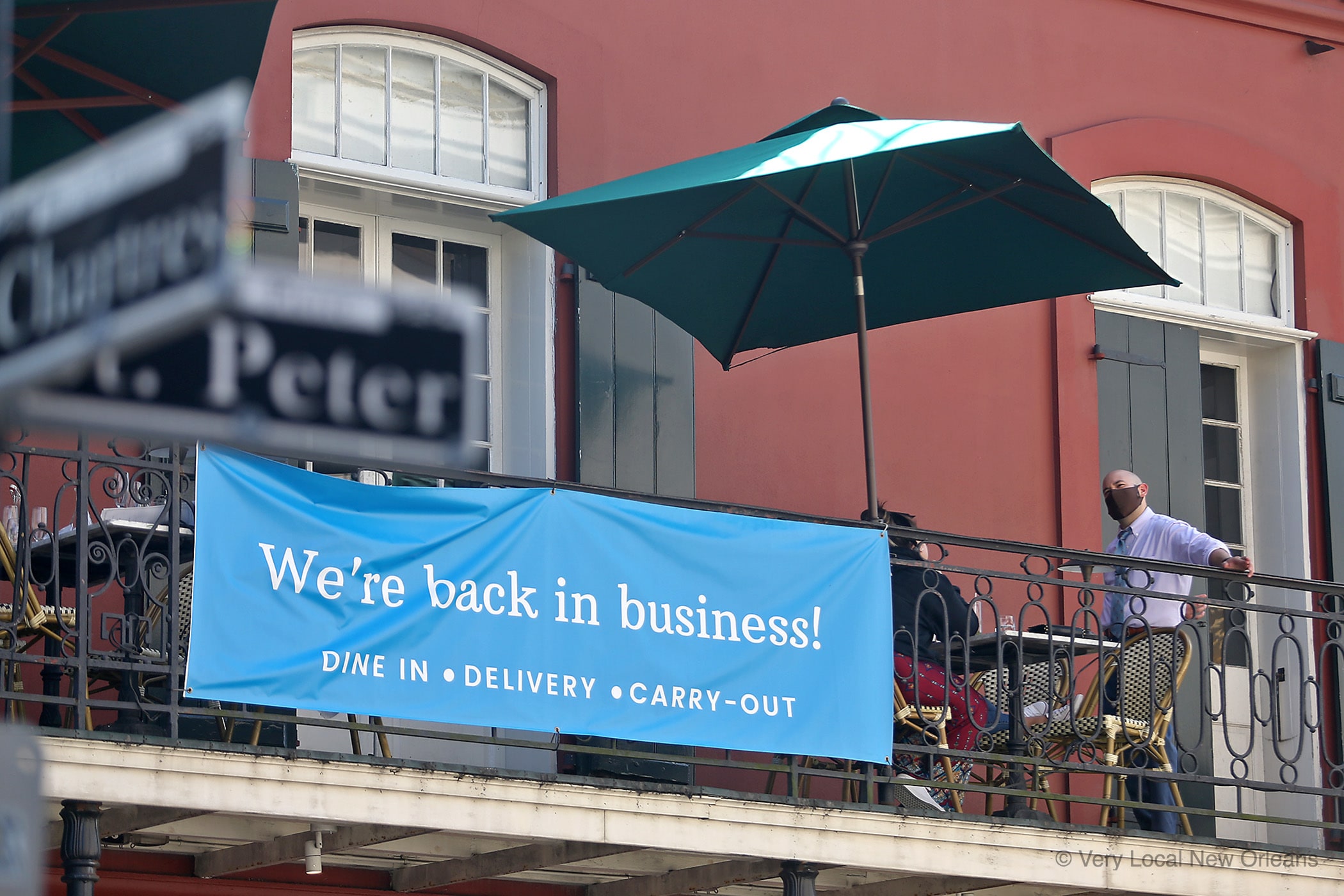
This time, the road to recovery will be paved not with tenacity but with patience.
“We can all peer into the future and think about what the city is going to look like, but it feels like a Katrina moment,” Martin said. “As New Orleans starts rebuilding itself, I hope the restaurants that have integrity and good food and support a community of fishermen and farmers are still standing.”
As happened after Katrina, creative solutions have started to appear, even as restaurant closures continue. Homebound chefs are crafting meals at home and selling straight from their front doors. Others are taking over restaurant kitchens on off days.
“The pop-up financially, at this moment, is the best way to operate for now,” said Serigne Mbaye, who’s been cooking his Senegalese cuisine at the Southern Food and Beverage Museum’s kitchens. “If you create a concept where you stay small … if you’re busy, you’re busy. It’s a gamble, but it’s less of a gamble than having a restaurant where you’re tied down to a lease and salaries.”
The era of the expensive restaurant build-out is likely on ice, according to LeBlanc.
“People will want a fine, elegant dining space, but it cost us six times more to build Longway than to build Barracuda,” LeBlanc said. “No way you can convince me Longway is six times better or six times the value.”
Stan Harris, the president of the Louisiana Restaurant Association, has said the New Orleans area is projected to permanently lose about 40 percent of its restaurants, which would create a seismic shift for those that remain.
“Most (restaurant) workers are treated like gig workers… Our jobs are considered temporary in nature, and especially in New Orleans, they’re not temporary. You may be at one restaurant temporarily, but you’re in the industry for decades,” said Yip. “New Orleans wouldn’t be what it is without that.”
More coverage from Very Local New Orleans on the effects of the worldwide pandemic in the hospitality industry:
- Recipe of Disaster: As bars close, hospitality workers face housing crisis
- Frustration, rage, grief: New Orleans restaurants, breweries forced to close due to hostile climate in COVID pandemic
- Opening A Restaurant In A Pandemic? These New Nola Spots Have Done It
- Broad Theater closes for second time during COVID pandemic
- K-Paul’s Louisiana Kitchen to close amid COVID-19 pandemic
- Collapse, COVID, and uncertainty: How businesses near Hard Rock Hotel collapse site are surviving


